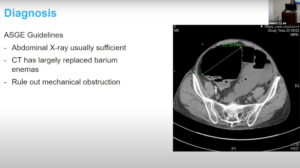NEW YORK (Reuters Health) – An “evolving concept” in the treatment of inflammatory bowel disease is to use biologic agents to obviate long-term treatment with steroids, according to new guidelines. However, not all patients with IBD require biologic therapy.
Those and numerous other recommendations are contained in a position statement from the World Congress of Gastroenterology and the European Crohn’s and Colitis Organization, published online November 2 in the American Journal of Gastroenterology.
The guidelines address when to start biologic therapy for IBD, when to stop, which drug to choose, and how to predict response.
The lead author of the report, Dr. Geert R. D’Haens, with the Academic Medical Center in Amsterdam, The Netherlands and colleagues advise that availability and patients preference, as well as reimbursements policies, guide the choice of first-line biologic treatment for Crohn’s disease (CD). “Infliximab has the most extensive clinical trial data, but other biological agents (adalimumab, certolizumab pegol, and natalizumab) appear to have similar benefits in CD.”
Indications for starting one of these agents include steroid-refractory, steroid-dependent, or complex fistulizing CD, the authors suggest. They also point out that “The combination of infliximab with azathioprine is better than monotherapy for induction of remission and mucosal healing up to 1 year in patients who are naive to both agents.”
The likelihood of response to anti-TNF agents is higher in patients with early luminal CD than in those with long-standing disease, the panel states. Also, “Patients with a high CRP have a higher chance of achieving and maintaining response to biological therapy than patients with a low or normal CRP.”
The document also lists several contraindications to anti-TNF treatment, including fibrostenotic CD without inflammation, uncontrolled infections, latent TB, and a history of malignancy, severe congestive heart failure, or demyelinating neurologic disease.
In their conclusion, Dr. D’Haens and colleagues note, “Loss of response or intolerance to anti-TNF therapy can be managed by optimizing dosing regimens, switching anti-TNF agents, or switching class. It is unclear whether these approaches are similarly effective.”
They add, “It is also unclear when treatment can be stopped.”
Am J Gastroenterol 2010.




